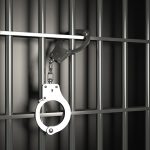San Jose may ask voters to support a parcel tax to help chip away at a half-billion dollar parks maintenance backlog — but with other tax measures on the ballot and the potential for voter fatigue, the city could face an uphill battle.
The City Council is set to decide at a special meeting Tuesday on whether to place the parcel tax on the ballot, a decision that could leave taxpayers with nothing to show for it except for a $2 million bill if the initiative fails.
City staff are finalizing a recommendation on whether to proceed after the City Council voted last month to conduct another round of polling. The first batch of polling results came close to meeting the two-thirds threshold needed for passing a parcel tax. Elected officials had sought to find other ways to generate revenue in March with the city facing a $50 million shortfall for the coming fiscal year.
San Jose Mayor Matt Mahan said that while the city’s parks historically have been underfunded, he would follow the community’s lead. In speaking with the community, he noted a legitimate concern that “residents are feeling squeezed.”
One option still on the table is a parcel tax based on lot size that is structured as one cent per square foot for residential properties and three cents per square feet for non-residential uses. If successful, the parcel tax could generate approximately $31 million annually while costing the average homeowner $69 per year.
San Jose also conducted polling through True North Research to gauge voter sentiment on different revenue options, including the potential of levying an additional sales tax or issuing a general obligation bond.
However, a provision in state law limits combined local sales taxes to 2%, putting San Jose at its cap and making the city ineligible to opt for that method.
City staff recommended punting on a bond measure due to the high probability of failure. Needing a two-thirds vote to pass, only 42% of participants offered support for a bond.
The last successful bond measure to fund city parks occurred in 2000 when the voters approved a $228 million initiative for capital improvements.
The first round of surveying, in May, also queried residents about amending the city charter to allow the city to lease public parklands to commercial entities for 55 years, up from the current 25-year allowance.
Despite only needing a simple majority to pass, polls showed only 46% supported that option, leaving a parcel tax as the only viable method for the City Council to consider.
Initial polling for two different wordings of a one-cent residential parcel tax measure nearly resulted in two-thirds support. One of the ballot questions jumped to 72.4% support when lowered to a half-cent tax.
Parks supporters were confident the results would improve with an educational campaign.
“During Covid, we did an internal poll of park usage by our supporters and donors and friends of the parks foundation, and it was overwhelming how valuable the parks were,” said James Reber, the executive director of the San Jose Parks Foundation. “You can say a city without parks is nothing, but a city with parks that people use and value is really important. We’ve got to take the initiative and take it now.”
Before the council makes its decision Tuesday, multiple elected officials warned of potential pitfalls last month.
District 4 Councilmember David Cohen expressed concerns with “cannibalization” on the ballot as voters will face questions about whether they support several other local and state measures.
“I’m very concerned about putting something on the ballot here that reduces support for something else that we really need, so I think we have to be really thoughtful about the effect,” Cohen said.
He also noted that polling needed to account for the entire ballot landscape, not just whether voters supported an isolated issue.
So far, elected officials have placed tens of billions of dollars in bond measures on the November ballot, including a $10 billion climate bond and $10 billion statewide school infrastructure measure.
The largest and probably most consequential proposed measure in the region is the $20 billion housing bond placed on the ballot by the Bay Area Housing Finance Authority, which has estimated adding an average of $18.98 per $100,000 assessment in the nine Bay Area counties.
The San Jose Unified School District’s board of trustees also voted last week to put a $1.2 billion bond measure on the ballot for upgrades and repairs to facilities. If passed, that measure would cost an additional $60 per $100,000 assessed value, equating to an average of $414 annually.
California has already seen a movement opposing the number and level of taxes paid by residents.
The Taxpayer Protection and Government Accountability Act, an initiative that sought to require voter approval for increases in statewide taxes and fees, was set to appear on the November ballot before the California Supreme Court struck down the initiative on constitutional grounds.
At least two San Jose elected officials also have raised concerns about potential blowback from residents in response to additional taxes.
Related Articles
Editorial: California voters should reject rent control and ‘Revenge of the Landlords’
Walters: California’s voters face competing ballot measures as interest groups clash
Letters: Housing bond | Resolving ambiguities | Harris critique | Get serious | Cruel order | Best hope
Mathews: Why the California ballot should have counterproposals
Uber, Lyft, DoorDash workers remain contractors after California Supreme Court ruling
District 10 Councilmember Arjun Batra disagreed with the city’s asking more from property owners, instead of trying to generate additional revenues through commercial growth.
“I personally do not see our district, which is one of the affluent districts, being too excited about having another tax item,” Batra said.
District 7 Councilmember Bien Doan took a more defiant stance, opposing new taxes given the financial burden residents are facing.
“We keep asking for more and more (from) taxpayers, and eventually it’s almost like gentrification,” he said. “We’re forcing people to move out of here because they can’t afford to live in this particular valley anymore.”


